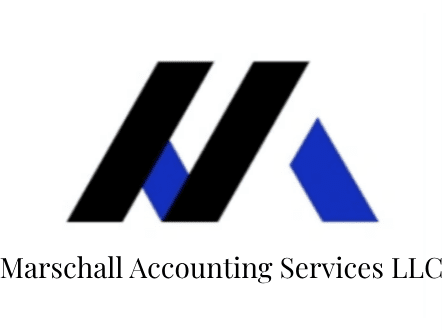Article: Audited? What Comes Next
Category: 1040 income tax

Jessica I. Marschall, CPA
President Marschall Accounting Services LLC
The day’s mail arrives and, with it, a dreaded letter from the IRS. A taxpayer’s return has been selected for examination or the dreaded A-word AUDIT.
The IRS does not provide reasons as to why a return is selected. However, in our 21 years of work with clients and the IRS, the following tax situations have typically come under an examination/audit:
- Schedule C, or small business income and expenses
- Schedule E, rental or S-Corp income and expenses
- Irregular amounts like a high Schedule A Itemized deduction amount.
- From the Schedule A above, cash and especially non-cash charitable deductions are examined. If the non-cash donation is greater than $5k it requires an appraisal…and the appraisal better be by an IRS Qualified Appraiser producing an IRS Qualified Appraisal. See our two companies The Green Mission Inc. and Probity Appraisal Group for more information on appraisals for non-cash charitable deductions.[1]
- Capital gains transactions including sales of personal residence, sales of rental properties, and stock holding sales.
Audits only commence by mailed notification.
This notification will request additional information, typically to substantiate income claimed and deductions taken. The taxpayer must respond in writing by a date given on the notice.
Audits typically only go back three years.
However, if the dreaded F-word is suspected, FRAUD, the IRS can go back as far as they would like.
There are taxpayer rights when it comes to the agreement or disagreement with the outcome of the audit. Please see this link from the IRS for more information:
What to do if Audited
1. Call your CPA and upload the IRS letter for them to review.
2. If you are not working with a CPA, find a reputable firm to walk you through the process.
3. Be ready to provide the requested substantiation for all revenue and expense items under examination.
Audits Can be as Painless as Possible
If a taxpayer keeps good records, an audit can be as simple as an hour to collect and collate paperwork and remit to the IRS. Tips for making this happen:
1. PLEASE use accounting software for your business transactions. Using a product such as QuickBooks Online or Xero allows you to import all transactions, upload receipts, reconcile bank and credit card statements and can turn an audit into a 1-hour CPA charge versus 40-hours. Without software, the client and CPA will spend hours combing through bank and credit card statements. And the words, “I keep everything in Excel,” make most CPAs cringe.
2. Understand the tax forms and deductions. TurboTax is NOT a client’s friend when it comes to business tax returns. For example, TurboTax will allow a small business owner to deduct amounts for business suits, hair and make-up, dry cleaning, and client entertainment. None of these are generally deductible. TurboTax will also allow you to book a rental property for the full land and improvement value and depreciate land. Land can never be depreciated. Work with a trusted CPA from the beginning.
3. Do not mingle personal and business expenses in a business account. The IRS can find comingled expenses and disallow numerous business deductions because they assume they could be personal.
4. Use a payroll service for employees. Ensure the business is compliant in remitting employer taxes including federal withholdings, state withholdings, Medicare and Social Security (both employer and employee), federal and state unemployment.
5. Be Honest. Do not attempt to hide revenue or take erroneous expenses. The fines, penalties, and interest for these “errors” or “fraud” is huge.
Reach out to our firm should questions arise due to an audit. We have been providing services to clients under audit for two decades and can make the process as painless as possible.
(414) 217-0147




